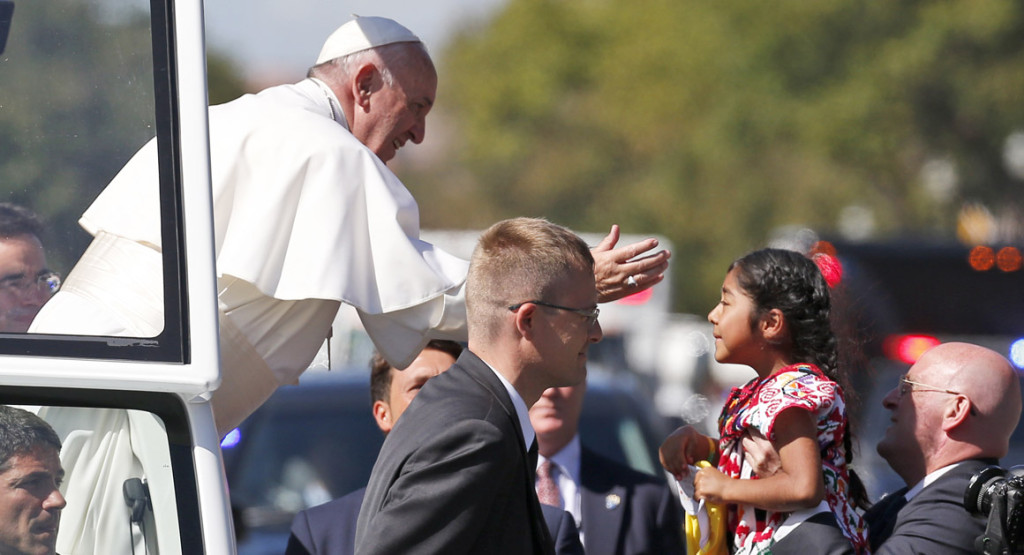SEPTEMBER 28, 2015
(AP Photo/Alex Brandon, Pool)
It was June of 1963. I was about to turn 12 and was in love with the Roman Catholic Church.
More accurately, I was in love with Pope John XXIII, the portly Italian Pontiff who resembled more than a few of my friends’ grandfathers. He always had a smile on his face and his arms stretched out to anyone who needed a hug and a blessing. He was the friendliest face that any church could hope for in attracting converts.
I was an altar boy in those days and enjoyed being on stage. (Some things never change.) I loved the trappings (the cassock, the incense, the water & wine) and the ritual of the Mass — this is the way it had been done for centuries and offered a comfortably familiar structure.
Then it all changed. John XXIII convened the Second Vatican Council, and suddenly the Mass I had known was altered. “You mean it’s going to be in English?” I thought, “And the priest is actually going to face the congregation?” Initially I was taken aback, but after a while I began to become more involved in the true meaning of the Mass. More importantly, it was the first time I realized that the Church could change and that it could change for the better, thanks to this Pope and his pastoral ministry. He offered hope.
Then that June, John XXIII suddenly died. I was saddened but assumed that the good work he had done would live on in his successors. But the rate of change that had so moved me began to slow down to a crawl. What change there was came from the tone from the pulpit. The pastoral love for the poor and helpless virtually disappeared and was replaced by stern warnings about sexual matters.
When I became an adult, I realized that I was gay, but I still attended Mass every Sunday. But it began to pain me to listen how priests condemned me and my friends, who were good people, over the manner with which we expressed our love for one another. When those condemnations continued even as the scandal over the Church’s protection of pedophile priests broke, the hypocrisy coming from those pulpits was too much to bear. This was a Church that no longer wanted me, and I no longer wanted them.
Cut to last week’s visit to America by Pope Francis. The Church he embodies has changed little in its policies — the social and sexual attitudes are still in place, and the status of women in the Church remains abysmal. However, what Pope Francis chose to emphasize and how he chose to express it marked a sea change from recent Popes. Francis, who in the past has humbly washed the feet of prisoners, the disabled and Muslims, here skipped lunch with the clergy to eat with the homeless. He consoled victims of molestation by the clergy and sincerely apologized. He emphasized ministering to the poor and well as concerns over what man is doing to the environment.
With his wide smile and open arms, he behaved like John XXIII and, like him, spoke of matters spiritual rather than expressly political. As he reached out to bless children being hoisted his way, I thought of the Good Shepherd tending to his flock. I still have little faith that the institution of the Church can return to the values of the Second Vatican Council. However, for the first time since 1963, a Pope has actually offered me a little bit of hope.












